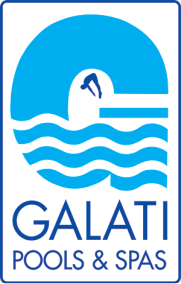Financial Benefits
You can include in medical expenses amounts you pay for special equipment installed in a home, or for improvements, if their main purpose is medical care for you, your spouse, or your dependent.
Capital Expenses
You can include in medical expenses amounts you pay for special equipment installed in a home, or for improvements, if their main purpose is medical care for you, your spouse, or your dependent. The cost of permanent improvements that increase the value of your property may be partly included as a medical expense. The cost of the improvement is reduced by the increase in the value of your property. The difference is a medical expense. If the value of your property is not increased by the improvement, the entire cost is included as a medical expense.
Medical Prescription Hot Tub Tax Deductions
Arthritis is no doubt a debilitating disease. As with all diseases, it can be extremely costly. Where a qualified physician has recommended the installation of a spa or pool, some of the sting may be taken out of the cost if the disabled person can secure a medical expense income tax deduction. Remember that a written recommendation is the first and most important step in the deduction process.
People are generally aware that they can deduct medical expenses for payment to doctors, dentists, registered nurses and for prescription drugs. But they may not be aware that special equipment, including a spa or pool, which is installed principally for the medical care of the tax payer or tax payer’s dependent (e.g., a child or a mother), also may result in full or partial tax deduction.
Further, one the item qualifies as a capital-improvement medical deduction, even if only the part of the cost is deductible, the entire maintenance cost (repairs, cleaning, electricity, etc.) is deductible on each year’s tax return. Of course, because of the 7.5 percent limitation (described in the next several paragraphs), the annual upkeep may not result in any annual tax savings. A renter is eligible for the same installation and upkeep deductions as described above.
Calculating Your Situation
If the customer beautifies the spa or pool installation with extras (e.g., special architecture which translates into “lavish or extravagant”), then only the reasonable cost of the installation will be allowed as a deduction.
If the installation increases the value of the residence, the arthritic homeowner may deduct the difference between the installation cost and the increase value of the residence.
For example, if an installation costs $17,000 and the value of the residence before the installation is $200,000 and after the installation it is $210,000, the homeowner may deduct $7,000. However, if the value of the residence was not increased as a result of the installation, the entire $17,000 would constitute a medical deduction. Please note that the entire deduction is permitted to be taken in one year as compared with business improvements, which are required to be depreciated over a period of more than one year. But they may not be aware that special equipment, including a spa or pool, which is installed principally for the medical care of the taxpayer or the taxpayer’s dependent, also may result in full or partial tax deduction.
Medical expenses must be reduced by 7.5 percent of adjusted gross income before the expenses will result in an actual tax savings. Therefore, if in the prior example, the homeowner’s adjusted gross income was $80,000, his/ her net tax deduction would be $1,000 ($80,000 x 7.5 percent = $6,000; $7,000 minus $6,000 = $1,000). Of course, since the 7.5 percent deduction is not met, all other medical expenses for the year become fully deductible and will result in a tax savings.
Another point to remember for that time in the future when the home is sold and a gain on the sale must be calculated is that the homeowner cannot increase the home’s tax basis (e.g., the cost of the house plus improvements made to the house) to the extent that the homeowner has taken a tax deduction.
Guidance from the IRS The Internal Revenue Services issues and interpretations of the tax laws. Over the years, several pro-tax payer rulings and case decisions have been issued in the spa/pool area. Of special interest is a private letter ruling (this is a ruling issued to the specific taxpayer who requested the interpretation to ensure his/her deduction) involving a person with severe Osteoarthritis, a wearing out of the joints, which afflicts nearly 15.8 million Americans. The IRS ruled that the taxpayer could deduct the cost of an exercise pool under the following circumstances:
- He was advised by his physician to swim several times a day.
- There were no adequate facilities close to his residence.
- The pool was specifically designed and was not suitable for general recreational use.
- The primary purpose of the pool was for medical care.
Even if other people can use the pool or there is a pool nearby, it does not mean that the deduction, described in this article, will necessarily be lost. Each situation stands on its own facts.
If you would like further information about medical-expense tax deductions, suggest that they request Publication 502 from the Internal Revenue Service.
Alan Weiner is a tax partner with Holtz Rubenstein & Co., Certified Public Accountants, Melville, New York. AQUA • HEALTH & FITNESS • 38 • MARCH 1990
By Allen E. Weiner,CPA, J.D., LL.M
Source: https://www.irs.gov/publications/p502/ar02.html#en_US_publink1000178902

